Hello guys I am currently working on django views and templates and met some problems. I have a model named 'metabolites', which contains: id, name, compartment, charge and formula 5 components. I have another model named 'Reactionsmeta', which contains: id(reactions), name, metabolie1, metabolite2, .... metabolite6. The table of this model is not filled complete, because sometimes one id corresponds to 5 metabolites, but sometimes even 20.
I write a template which can displays all the reaction, when I click on the reaction and enter the detail page, I also want to display the metabolites that involve in this reactions. My views.py and templates are written as below:
reactions_detail.html
{% extends 'Recon/Base.html' %}
{% load static %}
{% block title %}Reaction Details{% endblock %}
{% block body %}
<h1>{{ reactionsmeta.id }}</h1>
<h2>{{ reactionsmeta.name}}</h2>
<!-- Left Album Info -->
<div class="col-sm-4 col-md-3">
<div class="panel panel-default">
<div class="panel-body">
<a href="{% url 'detail_reaction' reactionsmeta.id %}">
{% if reactionsmeta.id %}
<img src="{% static "Recon/images/Logo-Technische-Universiteit-Eindhoven.jpg" %}" class="img-responsive">
{% else %}
<h3>No image to display</h3>
{% endif %}
</a>
<h1>{{ reactionsmeta.id }} <small>{{ reactionsmeta.name }}</small></h1>
</div>
</div>
</div>
views.py
from django.views import generic
from .models import Reactionsmeta,Metabolites,Reactions
from django.shortcuts import render
class IndexView(generic.ListView):
template_name = 'Recon/index.html'
context_object_name = 'Reactions_object'
def get_queryset(self):
return Reactionsmeta.objects.all()
class DetailsView(generic.DetailView):
model = Reactionsmeta
template_name = 'Recon/reactions_detail.html'
def get_context_data(self, **kwargs):
context = super(DetailsView, self).get_context_data(**kwargs)
context['metabolite'] = Metabolites.objects.all()
context['reactions'] = Reactions.objects.all()
# And so on for more models
return context
How can I write the loop in reaction_detail.html???
EDIT:
class Metabolites(models.Model):
id = models.CharField(primary_key=True, max_length=255)
name = models.CharField(max_length=255, blank=True, null=True)
compartment = models.CharField(max_length=255, blank=True, null=True)
charge = models.CharField(max_length=255, blank=True, null=True)
formula = models.CharField(max_length=255, blank=True, null=True)
notes = models.CharField(max_length=255, blank=True, null=True)
class Meta:
managed = False
db_table = 'Metabolites'
class Reactionsmeta(models.Model):
id = models.CharField(primary_key=True, max_length=255)
name = models.CharField(max_length=255, blank=True, null=True)
metabolite1 = models.ForeignKey('Metabolites', db_column='metabolite1',
blank=True, null=True, on_delete=models.CASCADE)
stoichiometry1 = models.IntegerField(blank=True, null=True)
metabolite2 = models.CharField(max_length=255, blank=True, null=True)
stoichiometry2 = models.IntegerField(blank=True, null=True)
metabolite3 = models.CharField(max_length=255, blank=True, null=True)
stoichiometry3 = models.CharField(max_length=255, blank=True, null=True)
......
stoichiometry55 = models.CharField(max_length=255, blank=True, null=True)
metabolite56 = models.CharField(max_length=255, blank=True, null=True)
stoichiometry56 = models.CharField(max_length=255, blank=True, null=True)
metabolite57 = models.CharField(max_length=255, blank=True, null=True)
stoichiometry57 = models.CharField(max_length=255, blank=True, null=True)
metabolite58 = models.CharField(max_length=255, blank=True, null=True)
stoichiometry58 = models.CharField(max_length=255, blank=True, null=True)
metabolite59 = models.CharField(max_length=255, blank=True, null=True)
stoichiometry59 = models.CharField(max_length=255, blank=True, null=True)
metabolite60 = models.CharField(max_length=255, blank=True, null=True)
stoichiometry60 = models.CharField(max_length=255, blank=True, null=True)
class Meta:
managed = False
db_table = 'ReactionsMeta'
